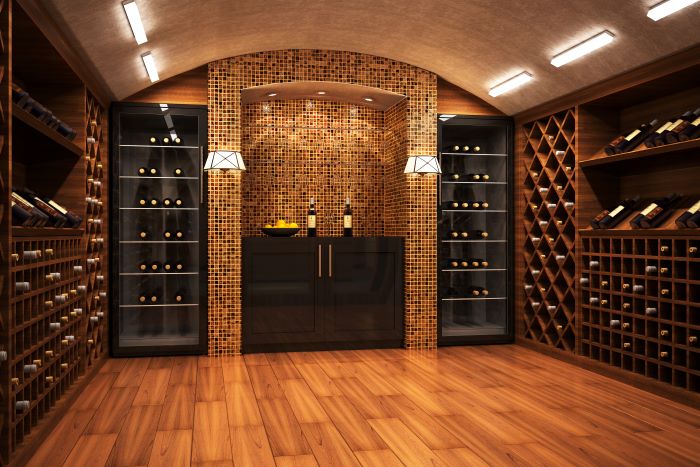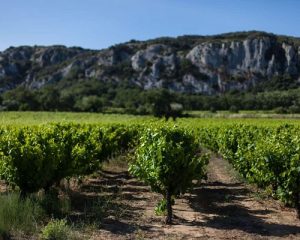
Wine can cultivate a long legacy and has the potential to grow in value. Here, iDealwine shares its 5 golden rules for judicious wine investment.
As the world’s number one online wine auctioneer, iDealwine sells wine made all over the world, and ships it all over the world! That being said, iDealwine’s long and loyal clients know and love it best as their favourite source of fine French wine. Our team lives and breathes French wine culture all day every day from our offices in Paris, Bordeaux, and Beaune. We’re delighted to bring our expert tips in creating a wine collection that has the potential to appreciate in value as well as develop in your glass!
- Vary wine regions
As all investment experts will tell you, a varied portfolio is the safest portfolio. In every French wine region, be it the Loire, Jura, Languedoc-Roussillon, Provence, Corsica, Savoie or Alsace; there are benchmark winemakers creating wine with serious investment potential, as they continue to capture the attention of oenophiles and demand outstrips supply. Keen wine investors have witnessed the breakthrough of Jura wines in recent years, and our data reveals the cold-climate, alpine Savoie could be the Next Big Thing.
Some examples of investment wine in ‘niche’ regions include:
- Domaine de Terrebrune (Provence)
- Domaine Vaccelli (Corsica)
- Domaine de Montcalmès (Languedoc)
- Domaine des Ardoisières (Savoie)
Check out all of our ‘rising stars’ here
Good to know: Every month, iDealwine prepares a report of our latest auctions, including our observations on the state of the wine market. Read our auction reports carefully to decipher the emerging domains. See our auction reports.
- Dedicate a large part of your cellar to the fine wine regions (Bordeaux, Burgundy, Rhône)
Vary your wine regions but don’t forget the classics! Why? Quite simply because the big names are known worldwide. Adding them to your collection not only creates an insurance policy, storing proven assets, but they should also be easy to resell, if that is what you choose to do. The wines of Bordeaux, Burgundy, and the Rhône must always represent the majority of wines in a cellar for investment. Think about the finest Burgundies, including the white wines, but also the rising stars of Bordeaux and the Rhone (especially in the appellations in the southern Rhone which still have attractive prices). For the regions where fine wines can reach colossal sums, it’s important to also select lesser-known gems.
Good to know: In 2021, Bordeaux represented 41% of the volume and 34% of the value exchanged in our auctions. It’s therefore essential to keep some “essential” wines such as the crus classes.
- Choose good vintages
This is one of the most significant points – you have to select good wines but, most importantly, choose good vintages! Opt for years that are of good quality and made for aging. There is for a simple reason for this: wine is not a short-term investment. For your wines to reach a satisfying value, you have to leave them for a while, at the very least, for 8 to 10 years. Hence, the need to prioritise wines made for laying down.
Good to know: iDealwine partnered with some great specialists in order to develop the perfect tool to help you: our vintage guide, which gives you the score and extra information on each vintage going back to 1798!
- Invest in organic, biodynamic, and even natural wines
You will have noticed that the tendency towards organic is present in all sectors, and wine is certainly not an exception. These wines, whether they’re organic, biodynamic or even natural, attract wine lovers on the condition that they are of good quality. Be careful with naturals wines, however, as the absence of sulphur means that they must be kept in absolutely perfect conditions.
Some examples of organic, biodynamic or natural wines for investment:
- Domaine Marcel Lapierre (Beaujolais)
- Domaine Jean-Louis Trapet (Burgundy)
- Domaine de Montille (Burgundy)
- Domaine Alain Voge (Rhône Valley)
Good to know: Each page for a wine on the iDealwine website contains information about how it was made, and you can also filter your search on the site according to the winemaking method you are looking for.
- Be attentive to the market and news from the wine world
We can never stress this point enough: investment in wine isn’t advisable for people who are not wine connoisseurs, or at least those who don’t wish to take the time to stay well-informed on the market. iDealwine, a specialist of the market, offers you all the information necessary for keeping up with the latest market trends: iDealwine’s Cote des vins (price estimate guide), our iDealwine indices, and monthly Auction Reports as well as sharing news from the wine market on the blog.
In terms of information regarding vineyards, large domains and rising stars, we recommend you read the specialist magazines (such as RVF and bettane+desseauve in France). Of course, it’s always better to choose wines that you enjoy: because, if the wines in your cellar don’t reach the value you were hoping for, there’s only one thing for it: to open the bottles and savour them.
Good to know: When the moment comes for you to part with your cellar, why not get a valuation– and sell! – your wines with the number one online wine auction house worldwide.
Read more on our blog:
Start your wine cellar in 5 easy steps
8 ideal wines to start an investment collection



